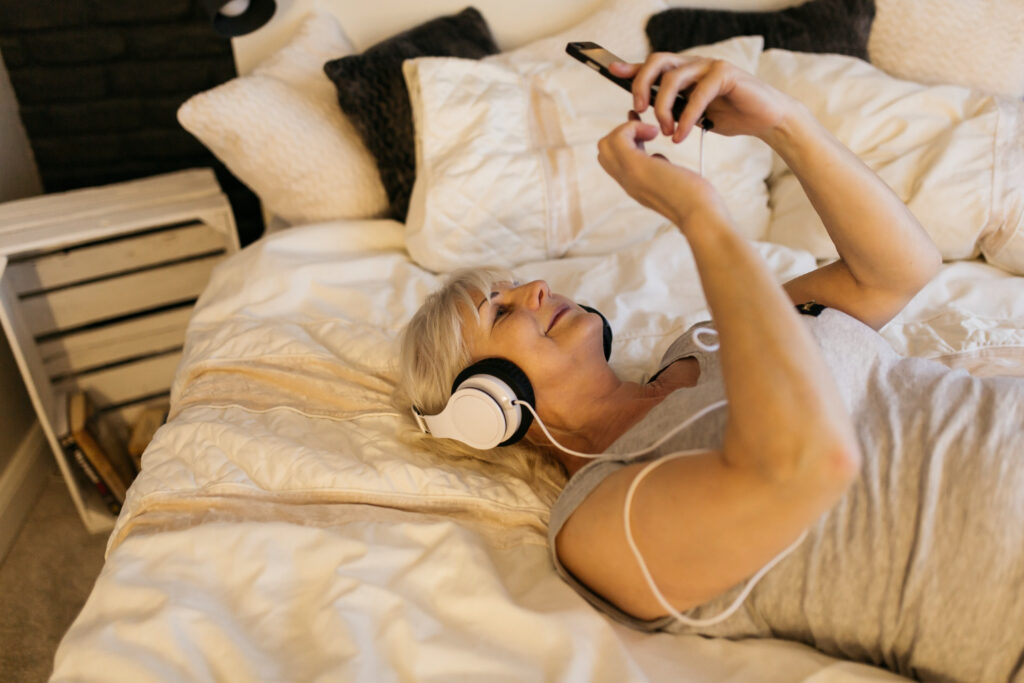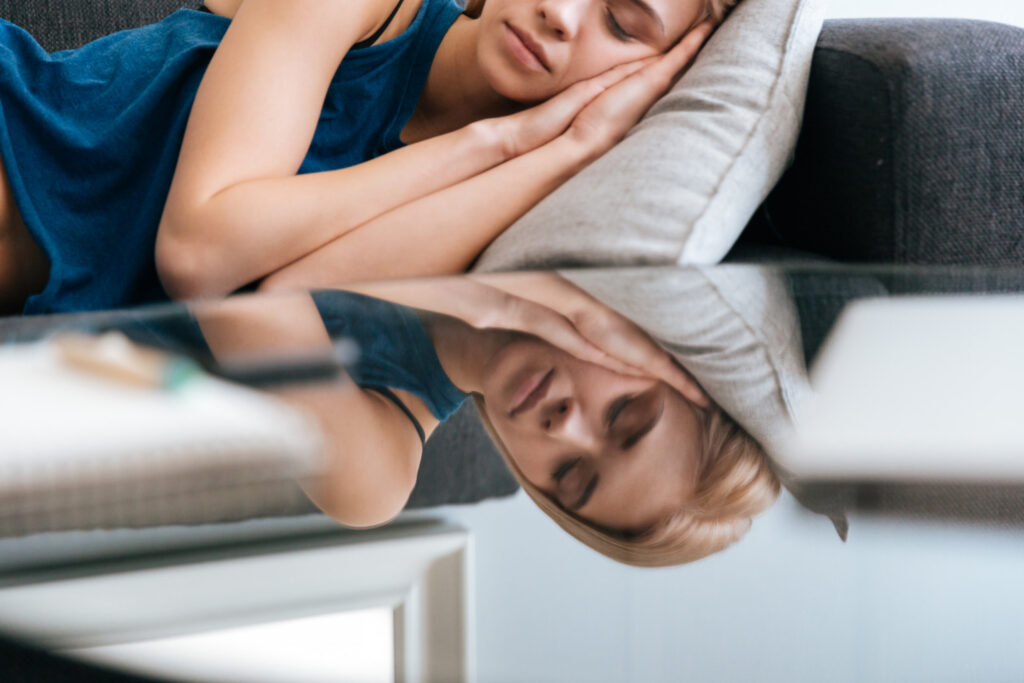Have you ever noticed your hearing seems a bit “off” after a restless night? You’re not imagining things. The surprising connection between sleep quality and hearing health is real, though often overlooked. While we typically associate hearing problems with exposure to loud noises or aging, the truth is that your sleep habits may be silently impacting your auditory health.
The Hidden Connection Between Sleep and Hearing
Many of us take our hearing for granted until something goes wrong. But what if I told you that those late nights binging your favorite shows or scrolling through social media might be affecting more than just your energy levels the next day?
Research has begun to uncover fascinating links between sleep deprivation and auditory processing. When we don’t get enough quality sleep, our entire body suffers—including our ears and the complex neural pathways that help us interpret sounds.
How Poor Sleep Affects Your Hearing
Our bodies repair themselves during sleep, and this includes the delicate structures in our ears. Here’s how insufficient sleep might be impacting your hearing:
1. Increased Sensitivity to Noise
Sleep deprivation can make you more sensitive to sounds that normally wouldn’t bother you. That neighbor’s music or office chatter might suddenly seem unbearable after a night of tossing and turning.
“When we’re sleep-deprived, our brain’s ability to filter out background noise becomes compromised,” explains sleep researcher Dr. James Wilson in a recent interview with Sleep Foundation. “This heightened sensitivity can feel overwhelming and contribute to listening fatigue.”
2. Reduced Sound Processing Ability
Ever notice how hard it is to follow conversations when you’re exhausted? It’s not just about maintaining focus—your brain’s actual ability to process sounds can decrease when you’re sleep-deprived.
A 2020 study published in the Journal of Neuroscience found that participants who experienced sleep restriction showed reduced activity in the brain regions responsible for auditory processing compared to well-rested individuals.
3. Temporary Threshold Shifts
Poor sleep can potentially lead to temporary hearing threshold shifts—meaning you might need sounds to be louder than usual to hear them properly. While usually temporary, these shifts can become problematic when poor sleep becomes chronic.
4. Tinnitus Exacerbation
For the 50 million Americans who experience tinnitus (ringing, buzzing, or whooshing sounds in the ears), sleep problems can create a frustrating cycle. Sleep deprivation often worsens tinnitus symptoms, and the increased tinnitus can further disrupt sleep—creating a difficult-to-break pattern.
5. Blood Flow and Cellular Repair Issues
During deep sleep, blood flow to the inner ear increases, delivering essential nutrients and carrying away waste products. Disrupted sleep means less time for this crucial maintenance process.
According to audiologist Sarah Peterson, “The cochlea—the spiral-shaped part of the inner ear responsible for hearing—needs proper blood flow to function optimally. Sleep is when this critical restoration happens.”
Why Is Modern Life Making This Worse?
Our hearing health faces more challenges than ever in today’s world:
1. The “Always On” Lifestyle
With smartphones, tablets, and other devices constantly demanding our attention, many Americans are experiencing chronically disrupted sleep patterns that prevent the deep, restorative sleep our auditory systems need.
2. Noise Pollution
Urban environments rarely truly quiet down. Even during sleep hours, background noise from traffic, neighbors, or household systems can prevent the complete auditory rest our ears need.
3. Stress and Sleep Quality
High stress levels—a common complaint in our fast-paced society—reduce sleep quality even when you’re getting adequate hours. This lower-quality sleep may not provide the restorative benefits your auditory system requires.
Protecting Your Hearing Through Better Sleep Habits
The good news? Simple changes to your sleep routine can help protect your hearing health:
1. Create a Consistent Sleep Schedule
Going to bed and waking up at the same time every day—even on weekends—helps regulate your body’s internal clock. This consistency promotes deeper, more restorative sleep that benefits your entire body, including your auditory system.
2. Optimize Your Sleep Environment
Make your bedroom a sanctuary for sleep:
- Keep the room cool (65-68°F is ideal for most people)
- Use blackout curtains to block light
- Consider using a white noise machine to mask disruptive sounds
- Invest in a comfortable mattress and pillows that support proper alignment
3. Establish a Device Curfew
The blue light emitted from phones, tablets, and computers can interfere with melatonin production—the hormone that helps you fall asleep. Try implementing a “no screens” rule for at least an hour before bedtime.
4. Watch Your Evening Diet
Caffeine, alcohol, and heavy meals close to bedtime can all disrupt sleep quality. Try to limit these, especially in the hours leading up to bedtime. Caffeine can stay in your system for up to 8 hours, so that afternoon coffee might still be affecting you at night.
5. Create a Relaxing Pre-Sleep Routine
Signal to your body that it’s time to wind down with calming activities like:
- Taking a warm bath or shower
- Reading a physical book (not on a screen)
- Practicing gentle stretching or yoga
- Deep breathing exercises or meditation
6. Address Underlying Sleep Disorders
If you consistently struggle with sleep despite making lifestyle changes, consider speaking with a healthcare provider. Conditions like sleep apnea not only prevent restorative sleep but can also create additional stress on your cardiovascular system—which in turn can affect blood flow to the auditory system.
When to Seek Professional Help
While improving sleep habits can benefit your overall health, including your hearing, certain symptoms warrant professional attention:
- Sudden hearing loss in one or both ears
- Persistent ringing, buzzing, or clicking sounds
- Difficulty following conversations, especially in noisy environments
- A feeling of fullness or pressure in your ears
- Dizziness or balance issues along with hearing changes
Better Sleep for Better Hearing
The connection between quality sleep and hearing health highlights how interconnected our body’s systems truly are. By prioritizing good sleep hygiene, you’re not just setting yourself up for more energetic days—you’re also taking an important step in protecting your long-term hearing health.
Remember that small, consistent changes often yield the greatest benefits. You don’t need to overhaul your entire lifestyle overnight. Start with one or two sleep improvements and build from there. Your ears—and the rest of your body—will thank you.

Disclaimer: This article is intended for informational purposes only and does not constitute medical advice. The information provided here is not intended to diagnose, treat, cure, or prevent any condition or disease. Always consult with a qualified healthcare provider regarding any questions you may have about your health, including hearing concerns or sleep difficulties. References to studies and expert opinions are provided for context, but individual experiences may vary.
Sources: Journal of Neuroscience, Sleep Foundation, American Academy of Audiology, National Institute on Deafness and Other Communication Disorders (NIDCD)



